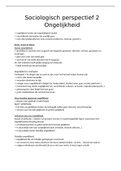LAW OF INTERNATIONAL ORGANIZATIONS
LESSON 1: INTRODUCTION – HISTORY – DEFINITION – TYPES
1. INTRODUCTION
Leuven at the heart of multilateralism:
- Brussels = biggest diplomatic capital in the world:
- diplomatis, international civil services, European Parliament, European
Commission, (European) Council, Economic and Social Committee
- also other non-European institutions:
- NATO, EEA (Norway, Lichtenstein, Ireland), Benelux
- also some global institutions:
- WCO (World Customs Organization), Eurocontrol (aerospace)
- The Hague:
- ICC (International Criminal Court), ICOF (International Court of Justice),
Europol, OPCW (Organizations on Prohibition of criminal weapons)
- Bonn:
- former capital of Germany, international city of sustainment
- Luxembourg
- European CoJ, European Investment Bank, Court of Auditors
- London
- International Maritime Organizations, Commonwealth
- Paris
- UNESCO, ESA (European Space Agency)
- International Camber of Commerce: is not an IO: we will discuss this later
- Strasbourg
- ECtHR
- Geneva
- WIPO (Wide International Proporty Organization), WTO (World Trade
Organization), WHO (World Health Organizaion)
- Vienna
- OSCE, UN, OPEC
not IO’s because not created by a government:
- International Chamber of Commerce (Paris)
- International Committee of the Red Cross (Geneva)
- → is a sui generis actor of international law
invasion of IO’s
- between 500 and 700 (depends on your definition)
- enormous diversity:
- bilateral, trilateral, multilateral, global
- intergovernmental – supranational
- intergovernmental: government representatives dominate the
working of the IO
- governments are using them to empower themselves
- government representatives (diplomats, ministers)
- supranational:
- organs have autonomy
1
, - above MS
- organ of that organization do not represent MS interests
- are not composed of MS representatives
- idea is that EU has independent organizations all around the
MS
- but: EU isn’t totally supranational!!
- fields of activity: highly specialized – very broad
- very broad: vb. EU & UN
- technical: others
- UN just adopted a declaration on younger generations
- not legally binding, just soft law
- topics van be very broad, but also very narrow and specific
- ever stronger impact on domestic legal systems, on policy-making and on individuals
→ eg:
- UN Security Council counterterrorism resolutions
- → they adopt all kinds of measures: oa. blacklisting of terrorist
suspects
- technical standardization from radio waves to GDPR
- from labour standards to cybersecurity
2. HISTORY
19th century → IO’s: a relatively recent phenomenon
- “concert system”: Congress of Vienna (1815) → Concert of Europe
- checks and balances: no power should be so powerful it is dominant over
other powers
- concert of europe: was a form of cooperation:
- collection of ad hoc conferences between the great powers after a
conflict or another event threatening to disturb the balance of power in
Europe
- permanent associations / unions:
- 1915: CCNR: central commission for navigation on the Rhine
+ 1856: European Commission on the Danube
- 1890: International Union of Railway Freight Transportation
- 1865: International Telegrapgh Union
- 1873: International Meteorological Organization
- 1874: General Postal Union
- universal since 1878
- Paris 1907: International Office of Public Health
- economic areas:
- 1875: Metric Union
- 1866: International Copyright Union
- 1902: International Sugar Union
- 1905: International Institute of Agriculture
⇒ interesting experiments with majority voting, regulatory powers, representation of
non-State interests (dependent territories, businesses,...) budget
20th century:
League of Nations & International Labour Organization: pioneers for IO’s
2
, - covenant of league of nations
- constitution of the ILO
→ both adopted on 28 june 1919
- League of Nations
- (doesn’t exist anymore → now we have the UN)
- Woodrow Wilson (US president) invented League of Nations
- part of Versailles treaty, but US never joined the LoN
- League became unstable organization because of a lack of powers
- but they never lost their great powers
- they have certain privileges which has essentially kept them on
board
- Member States:
- originally 45, max 60
- 60 MS: pretty universal because of all the colonial states
- unstable because a lot of withdrawals (vb. Italy)
- 3 main organs:
- Assembly: plenary meeting in Geneva, each MS 1 vote
- Council:
- permanent members (US → Germany / USSR, Britain, France,
Italy, Japan)
- + four (later 6, 9 and then 11) elected members
- Secretariat: Secretary-General + staff
- invented international civil services
- status and guarantee for independence
- problem:
- unanimity requirement , except in matters of procedure
- collective security mechanism defective
- creation of Permanent Court of International Justice (PCIJ) by assembly
- negotiation forum (120 treaties)
- Saarland, Free City of Danzing, mandate system
- → massive problem protection minorities
- → creating a system for protection with the possibility to launch
complaints
- International Labour Organization
- Member States:
- originally 45 MS
- today 187 MS (186 UN MS + Cock Islands)
- Philadelphia Declaration 1944: clarifies fundamental principles and aims
- why created?
- positive: making international labour standards for workers
- less positive: Russian revolution
- by 1917 there was Bolshevik Revolution, which was
threatening for the rest of the world, which is why ILO was
created
- became first UN specialized agency in 1946
3
, - unique tripartite character: representatives from the workers, industries and
employees
- 3 main organs:
- International Labour Conference:
- annually in june
- drafting international conventions and recommendations
- Governing Body → executive:
- 56 members
- 28 gov reps / 14 each industrial partner
- policy decisions; ILO programmes, prepare budget
- International Labour Office
- = secretariat
- headed by Director-General
- Declaration on Fundamental Principles and Rights at Work
- = 8 core conventions
- ILO Centenary Declaration For the Future of Work
- adopted by the Conference in 2019
3. DEFINITIONS
!! there is no universally accepted legal definition of an ‘IO’
“An association of States established by and based upon a treaty, which pursues common aims and
which has its own special organs to fulfil particular functions within the organization”
(Bindschedler)
“Forms of cooperation founded on an international agreement creating at least one organ with a
will of its own, established under international law” (Schermers & Blokker)
“An organization established by a treaty or other instrument governed by international law and
possessing its own international legal personality. International organizations may include as
members, in addition to States, other entities”(International Law Commission, Art. 2(a) Articles on
the Responsibility of International Organizations, 2011)
common elements:
- association
- subjects of international law
- established by treaty
- pursues common objectives
- one or more organs
1. association of subjects of international law
- most of the time States
- sometimes States + IO
- vb. WTO, FAO, EBRD
- WTO: to be a member of WTO you have to be a state or a
customs area
4
LESSON 1: INTRODUCTION – HISTORY – DEFINITION – TYPES
1. INTRODUCTION
Leuven at the heart of multilateralism:
- Brussels = biggest diplomatic capital in the world:
- diplomatis, international civil services, European Parliament, European
Commission, (European) Council, Economic and Social Committee
- also other non-European institutions:
- NATO, EEA (Norway, Lichtenstein, Ireland), Benelux
- also some global institutions:
- WCO (World Customs Organization), Eurocontrol (aerospace)
- The Hague:
- ICC (International Criminal Court), ICOF (International Court of Justice),
Europol, OPCW (Organizations on Prohibition of criminal weapons)
- Bonn:
- former capital of Germany, international city of sustainment
- Luxembourg
- European CoJ, European Investment Bank, Court of Auditors
- London
- International Maritime Organizations, Commonwealth
- Paris
- UNESCO, ESA (European Space Agency)
- International Camber of Commerce: is not an IO: we will discuss this later
- Strasbourg
- ECtHR
- Geneva
- WIPO (Wide International Proporty Organization), WTO (World Trade
Organization), WHO (World Health Organizaion)
- Vienna
- OSCE, UN, OPEC
not IO’s because not created by a government:
- International Chamber of Commerce (Paris)
- International Committee of the Red Cross (Geneva)
- → is a sui generis actor of international law
invasion of IO’s
- between 500 and 700 (depends on your definition)
- enormous diversity:
- bilateral, trilateral, multilateral, global
- intergovernmental – supranational
- intergovernmental: government representatives dominate the
working of the IO
- governments are using them to empower themselves
- government representatives (diplomats, ministers)
- supranational:
- organs have autonomy
1
, - above MS
- organ of that organization do not represent MS interests
- are not composed of MS representatives
- idea is that EU has independent organizations all around the
MS
- but: EU isn’t totally supranational!!
- fields of activity: highly specialized – very broad
- very broad: vb. EU & UN
- technical: others
- UN just adopted a declaration on younger generations
- not legally binding, just soft law
- topics van be very broad, but also very narrow and specific
- ever stronger impact on domestic legal systems, on policy-making and on individuals
→ eg:
- UN Security Council counterterrorism resolutions
- → they adopt all kinds of measures: oa. blacklisting of terrorist
suspects
- technical standardization from radio waves to GDPR
- from labour standards to cybersecurity
2. HISTORY
19th century → IO’s: a relatively recent phenomenon
- “concert system”: Congress of Vienna (1815) → Concert of Europe
- checks and balances: no power should be so powerful it is dominant over
other powers
- concert of europe: was a form of cooperation:
- collection of ad hoc conferences between the great powers after a
conflict or another event threatening to disturb the balance of power in
Europe
- permanent associations / unions:
- 1915: CCNR: central commission for navigation on the Rhine
+ 1856: European Commission on the Danube
- 1890: International Union of Railway Freight Transportation
- 1865: International Telegrapgh Union
- 1873: International Meteorological Organization
- 1874: General Postal Union
- universal since 1878
- Paris 1907: International Office of Public Health
- economic areas:
- 1875: Metric Union
- 1866: International Copyright Union
- 1902: International Sugar Union
- 1905: International Institute of Agriculture
⇒ interesting experiments with majority voting, regulatory powers, representation of
non-State interests (dependent territories, businesses,...) budget
20th century:
League of Nations & International Labour Organization: pioneers for IO’s
2
, - covenant of league of nations
- constitution of the ILO
→ both adopted on 28 june 1919
- League of Nations
- (doesn’t exist anymore → now we have the UN)
- Woodrow Wilson (US president) invented League of Nations
- part of Versailles treaty, but US never joined the LoN
- League became unstable organization because of a lack of powers
- but they never lost their great powers
- they have certain privileges which has essentially kept them on
board
- Member States:
- originally 45, max 60
- 60 MS: pretty universal because of all the colonial states
- unstable because a lot of withdrawals (vb. Italy)
- 3 main organs:
- Assembly: plenary meeting in Geneva, each MS 1 vote
- Council:
- permanent members (US → Germany / USSR, Britain, France,
Italy, Japan)
- + four (later 6, 9 and then 11) elected members
- Secretariat: Secretary-General + staff
- invented international civil services
- status and guarantee for independence
- problem:
- unanimity requirement , except in matters of procedure
- collective security mechanism defective
- creation of Permanent Court of International Justice (PCIJ) by assembly
- negotiation forum (120 treaties)
- Saarland, Free City of Danzing, mandate system
- → massive problem protection minorities
- → creating a system for protection with the possibility to launch
complaints
- International Labour Organization
- Member States:
- originally 45 MS
- today 187 MS (186 UN MS + Cock Islands)
- Philadelphia Declaration 1944: clarifies fundamental principles and aims
- why created?
- positive: making international labour standards for workers
- less positive: Russian revolution
- by 1917 there was Bolshevik Revolution, which was
threatening for the rest of the world, which is why ILO was
created
- became first UN specialized agency in 1946
3
, - unique tripartite character: representatives from the workers, industries and
employees
- 3 main organs:
- International Labour Conference:
- annually in june
- drafting international conventions and recommendations
- Governing Body → executive:
- 56 members
- 28 gov reps / 14 each industrial partner
- policy decisions; ILO programmes, prepare budget
- International Labour Office
- = secretariat
- headed by Director-General
- Declaration on Fundamental Principles and Rights at Work
- = 8 core conventions
- ILO Centenary Declaration For the Future of Work
- adopted by the Conference in 2019
3. DEFINITIONS
!! there is no universally accepted legal definition of an ‘IO’
“An association of States established by and based upon a treaty, which pursues common aims and
which has its own special organs to fulfil particular functions within the organization”
(Bindschedler)
“Forms of cooperation founded on an international agreement creating at least one organ with a
will of its own, established under international law” (Schermers & Blokker)
“An organization established by a treaty or other instrument governed by international law and
possessing its own international legal personality. International organizations may include as
members, in addition to States, other entities”(International Law Commission, Art. 2(a) Articles on
the Responsibility of International Organizations, 2011)
common elements:
- association
- subjects of international law
- established by treaty
- pursues common objectives
- one or more organs
1. association of subjects of international law
- most of the time States
- sometimes States + IO
- vb. WTO, FAO, EBRD
- WTO: to be a member of WTO you have to be a state or a
customs area
4










